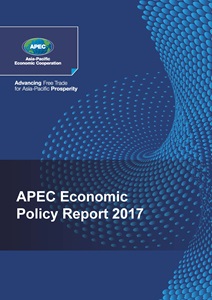
Proceedings
APEC Workshop on Promoting Decarbonization of Power Sector by Using Carbon-Free Energy (CFE)
The Asia-Pacific Economic Cooperation (APEC) is a regional economic forum established in 1989 to leverage the growing interdependence of the Asia-Pacific.
The Asia-Pacific Economic Cooperation (APEC) is a regional economic forum established in 1989 to leverage the growing interdependence of the Asia-Pacific.
APEC ensures that goods, services, investment and people move easily across borders. Members facilitate this trade through faster customs procedures at borders; more favorable business climates behind the border; and aligning regulations and standards across the region.
APEC ensures that goods, services, investment and people move easily across borders. Members facilitate this trade through faster customs procedures at borders; more favorable business climates behind the border; and aligning regulations and standards across the region.
APEC works to help all residents of the Asia-Pacific participate in the growing economy.
APEC works to help all residents of the Asia-Pacific participate in the growing economy.
Capacity building projects play an important role in helping translate APEC's goals into reality.
Capacity building projects play an important role in helping translate APEC's goals into reality.

Reports
•November 2017
Download Report
8MB
Published Under
Economic Committee (EC)
Accessed
28186
Pages
223
The 2017 APEC Economic Policy Report (AEPR) on Structural Reform and Human Capital Development discusses issues and policies relating to skills development and labour markets in the APEC region. It analyses how generally positive economic changes—such as the growth and development process, trade and globalisation, or technological upgrading—can contribute to structural unemployment, and what can be done to mitigate any negative impacts of these changes.
The report includes case studies by Viet Nam and Indonesia that provide an analysis of their relevant structural reforms and their impact, and some lessons learned and challenges going forward.
In addition, all APEC members contributed Individual Economy Reports highlighting the challenges, responses, and opportunities regarding structural reform and human capital development in their economies.

